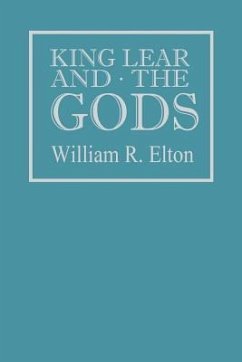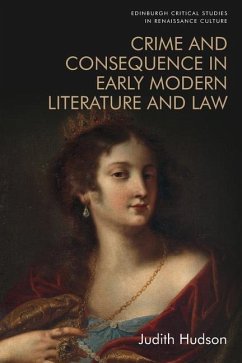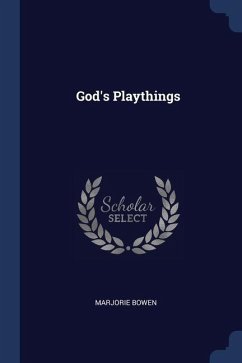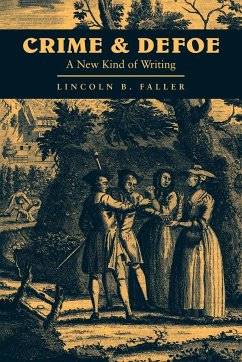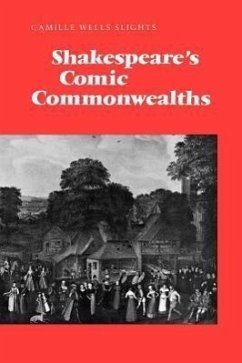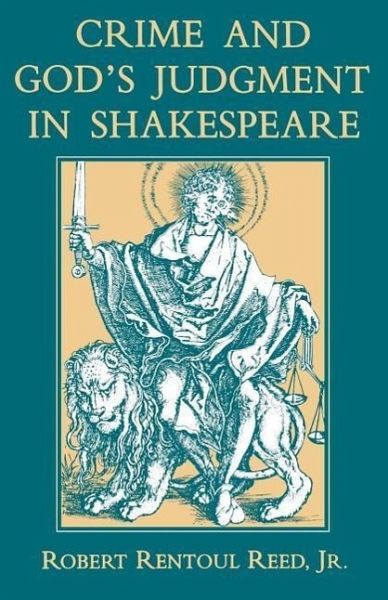
Crime and God's Judgment in Shakespeare
Versandkostenfrei!
Versandfertig in über 4 Wochen
25,99 €
inkl. MwSt.

PAYBACK Punkte
13 °P sammeln!
Divine retribution, Robert Reed argues, is a principal driving force in Shakespeare's English history plays and three of his major tragedies. Reed finds evidence of the playwright's growing ingenuity and maturing skill in his treatment of the crime of political homicide, its impact on events, and God's judgment on the criminal. Reed's analysis focuses upon Tudor concepts that he shows were familiar to all Elizabethans-the biblical principle of inherited guilt, the doctrine that God is the fount



